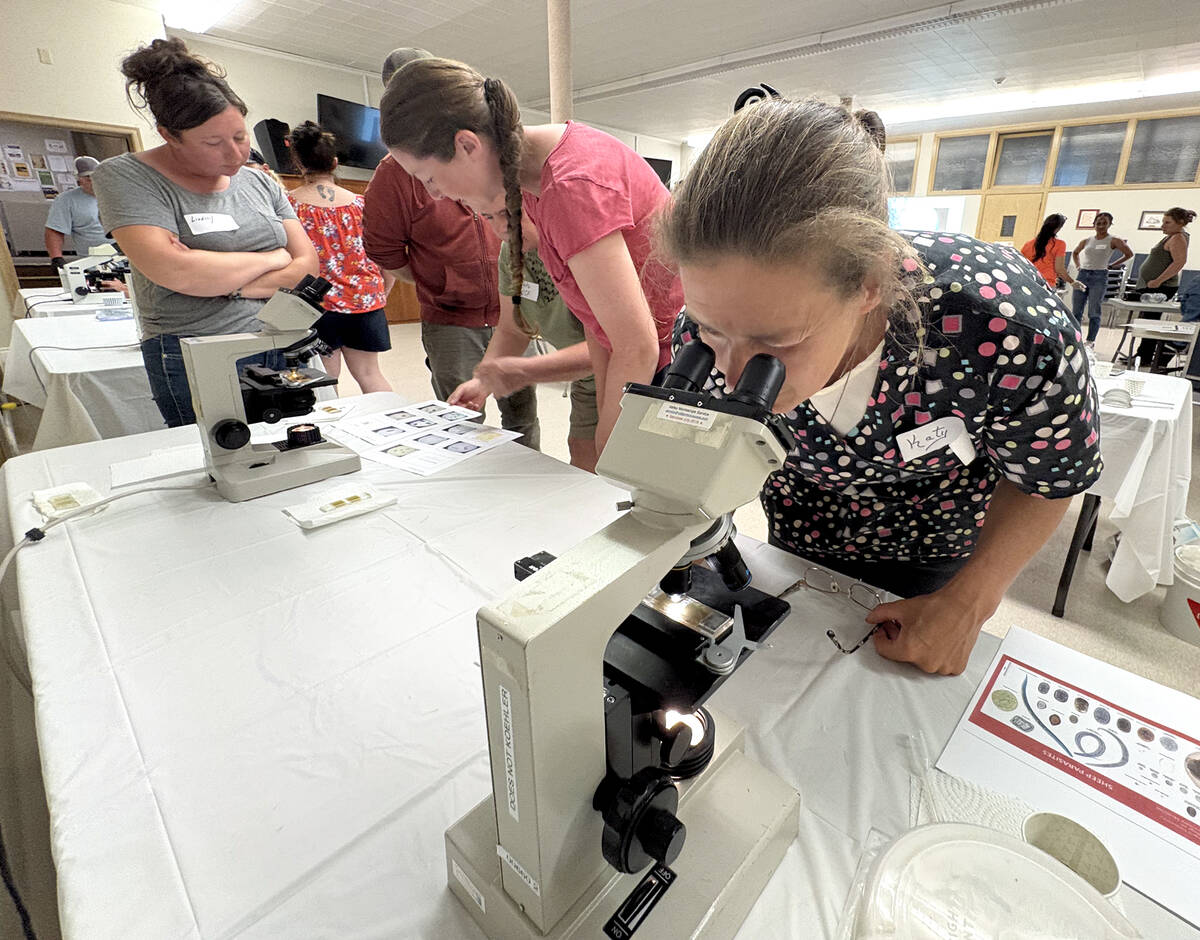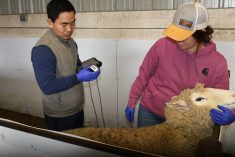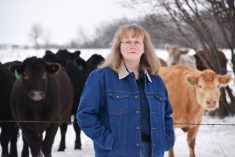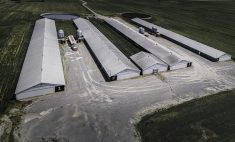The Agriculture and Agri-Food Canada (AAFC) Research Centre at Brandon is losing eight full-time employees, 850 head of cattle and $300,000 a year in revenue because the federal government is shutting down its beef research program.
Whether the herd is sold or moved, it will be the first time in the centre’s 127-year history without cattle, according to Barb Kristjansson, the regional vice-president of the Public Service Alliance of Canada’s agricultural union, which represents AAFC technicians and labourers.
“This is cow-calf country,” Kristjansson said in an interview May 16. “And that’s what Brandon does — cow-calf.”
Read Also

Smart deworming for sheep starts with individual fecal egg counts
Fecal egg count tests are one step to managing dewormer resistance and managing sheep parasites on Canadian sheep farms to maintain flock health.
Manitoba has almost 500,000 head of beef cows, the third-largest herd behind Alberta and Saskatchewan, she said.
“You can’t just do research in one area and apply it to the entire West,” Kristjansson said. “It doesn’t work that way.”
May 9 nearly 700 AAFC employees received Workforce Adjustment notices saying either they could lose their jobs or that their positions are being eliminated. Union officials expect in the end 400 staff will be unemployed.
Given notice
Beside the eight in Brandon, 22 AAFC staff under the agricultural union received notices — nine in Winnipeg, two in Morden, one in Dauphin and two in Beausejour. Some work for the Agri-Environment Services Branch, formerly the Prairie Farm Rehabilitation Administration (PFRA). The two in Morden are in office administration, Kristjansson said.
AAFC says it is streamlining to make it easier for farmers and processors to do business with government.
The research scientist overseeing the work has until next March to decide whether to move to AAFC’s Lacombe Research Centre where beef research continues.
In the meantime, AFFC has to decide what it’s doing with more than 800 head of cattle, Kristjansson said. The herd includes around 350 cows that would normally be undergoing artificial insemination (AI) now. The rest of the animals are calves, yearlings and replacement heifers.
“Their revenue from the beef cattle sales at the centre every year is about $300,000,” she said. “And that money, unlike other government revenue, goes directly back to Brandon to the beef department.
“But that $300,000 goes right out the door again and is all locally spent. They have tendered hay and straw purchases for years.”
Spinoffs
There are thousands of dollars in other spinoffs too, from veterinary services and fuel to equipment purchases, she said.
The cattle are grazed on land unsuitable for annual crop production. Nearby Crown land is also grazed.
Recent work has included improving conception rates with AI, rotational grazing, swath grazing, bale grazing and extended grazing.
One research trial currently underway, in collaboration with the University of Manitoba, involves grazing on different swathed forages. The project was supposed to continue until next year, Kristjansson said.
Research is important to Manitoba’s 8,000 cattle producers, says Cam Dahl, general manager of Manitoba Beef Producers.
“Whether it’s specifically that (Brandon) herd or not, I definitely want to see ongoing research in Manitoba and ongoing demonstration of research in Manitoba so that we know if there are new management practices or new techniques that will function on the ground in Manitoba,” he said. “I’m not quite sure how we do that yet, but that’s something that’s important to ensure happens.”
Partnerships
One option is for Ottawa, provincial governments, universities, the private sector and farm groups to work together to develop new partnerships, said Grains Growers of Canada executive director Richard Phillips.
National Farmers Union president Terry Boehm says the cuts are part of Agriculture Minister Gerry Ritz’s plan to kill publicly funded research, so the private sector can take it over and charge farmers for doing it.
At a celebration of the Brandon Centre’s 125th anniversary Aug. 11, 2011 Chris Kennedy, executive assistant to Brandon-Souris MP Merv Tweed, told celebrants the need for agricultural research is at an all-time high.
Tweed was unavailable for an interview.
Kristjansson said she’s disappointed in the MP’s lack of support for the Brandon Research Centre.
“He seems oblivious to what’s happening in his own constituency,” she said.



















